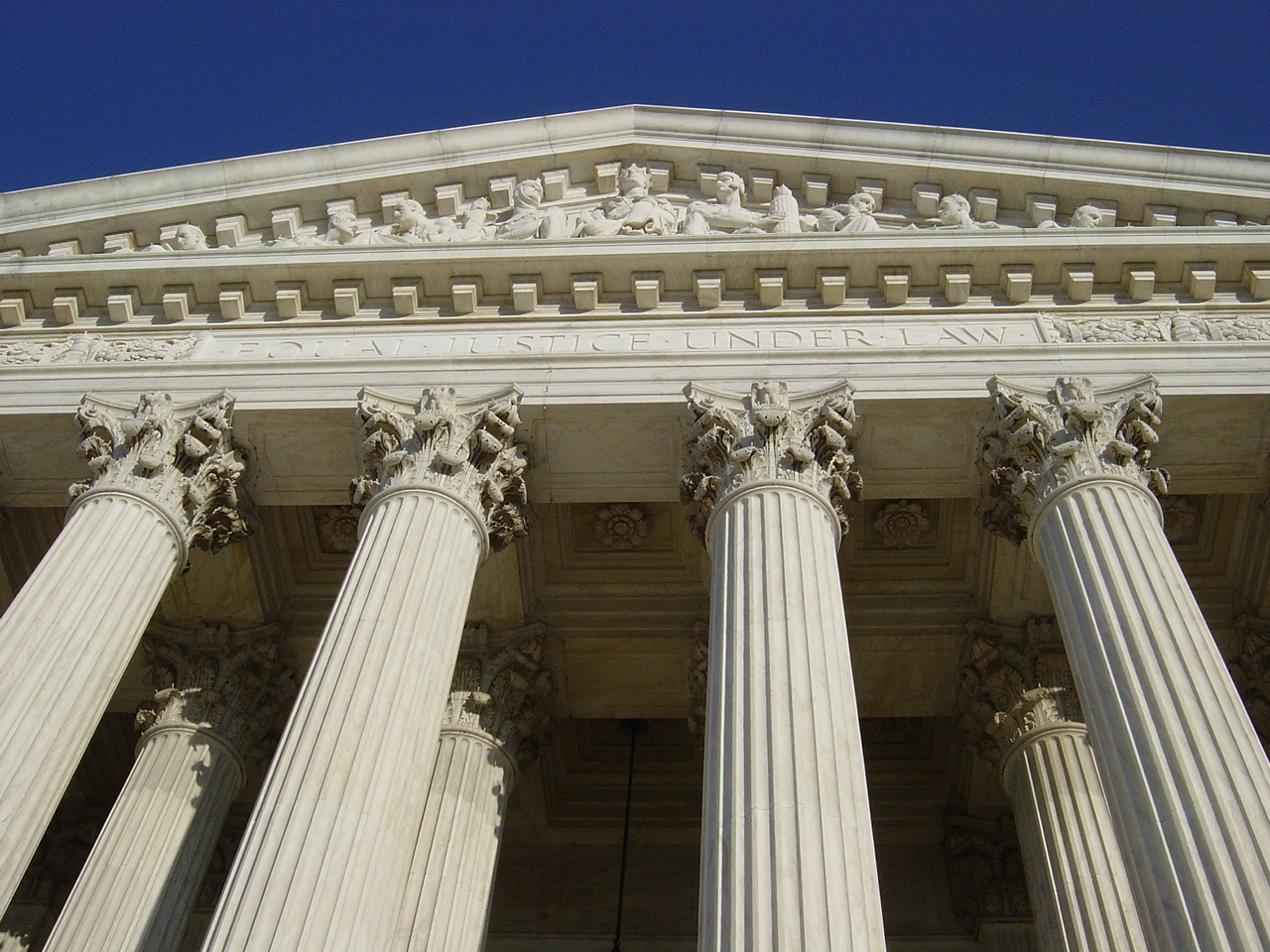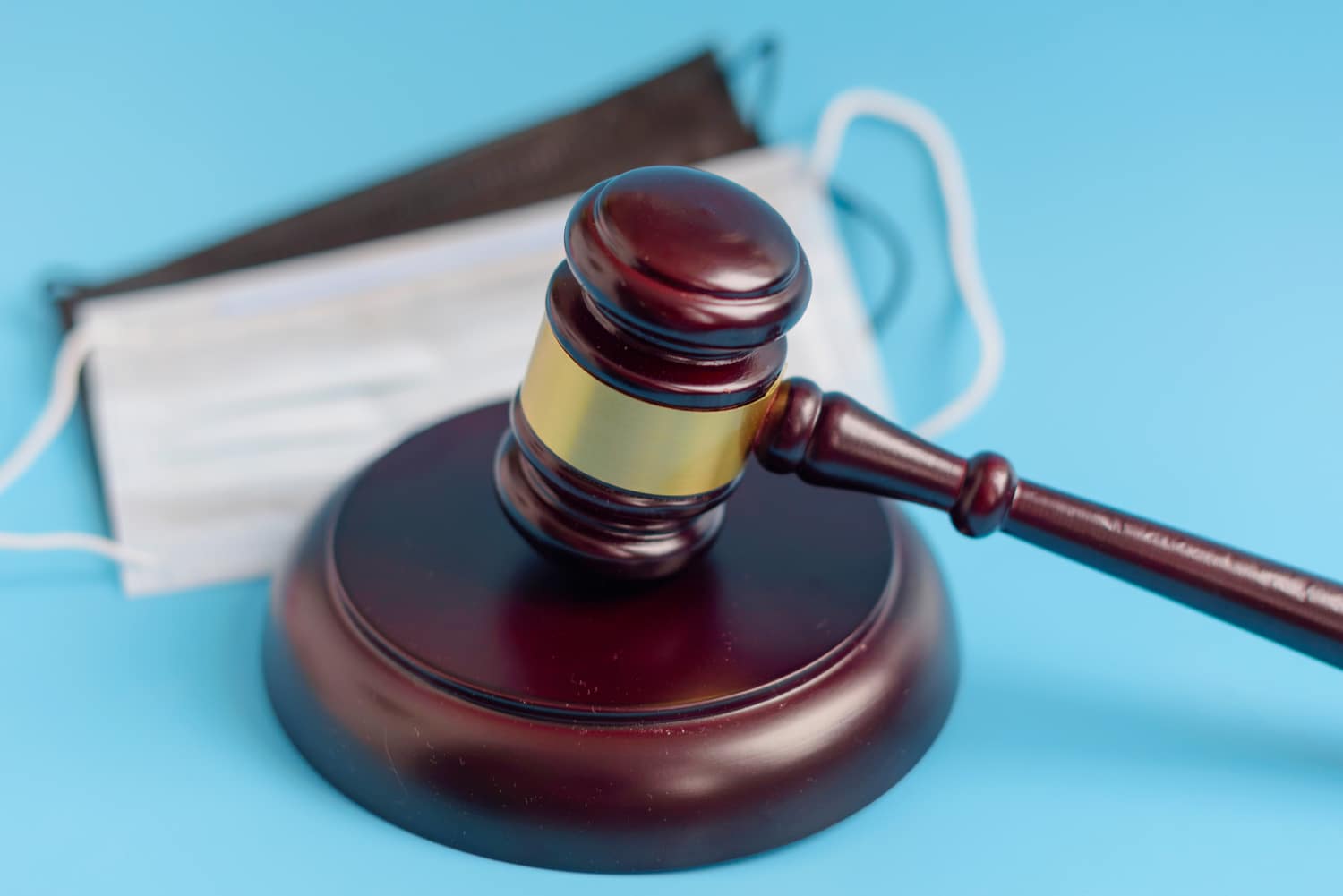
When searching for the etymology of a word or expression, one of the best investigative sources is the Online Etymology Dictionary (OE). Assembled from a compendium of sources, including the sage and venerable Oxford English Dictionary, the OE is a directory spanning hundreds of years, a kind of catalog of all English language expressions. Basically, it records the first appearance of a word or phrase as it initially appeared in written form along with some interpretation of the context for that expression. Think of it as the Google of English language, literature, and history.
By the early 14th century, the concept of the bar referred to a physical railing that separated benchers from the hall of the Inns of Court; the area past the bar held the judge, the barristers (attorneys), and the prisoners or those accused or liable. Passing the bar referred to the ability to enter that space, and the term barrister (which is what attorneys in England are called) loosely meant “a student of law who has been called to the bar” to advocate on behalf of another.
Apparently, early courtrooms were often raucous places, and the separation between public viewing and official legal affairs required more than just a physical barrier; in fact, the courtroom was typically overseen not only by the judge but also by a bailiff – an underling of the sheriff – or a similar authority figure (but these are etymologies for another day). Witness the loud outbursts, “Here-here-ing,” and hullabaloo of English parliament today, and you’ll get an earful of the of the early court’s likely atmosphere. Wonder why judges use a gavel? Imagine routinely trying to restore order in a rowdy courtroom and you’ll get the idea.
As a metonym (a word, name, or expression used as a substitute for something else with which it is closely associated), the bar now also refers more broadly to the association of licensed attorneys of law; for example, in the US, the American Bar Association (ABA), with nearly 400,000 members, still remains “one of the largest voluntary professional membership organizations in the world.” Similarly, the bench, at which the judge sat and presided, came to represent the larger judiciary or law establishment in general.
So why aren’t attorneys in the US called barristers? Though attorney is actually a French term meaning “one who is appointed,” in the English system it referred to one who was a “qualified legal agent in the courts of Common Law.” An attorney is actually the English equivalent of a solicitor: someone who can stand in place of the client or in the client’s shoes, so to speak. But a barrister, however, would typically only advocate and represent a client at the bar or during the actual trial. In the US, the distinction was dropped, and attorneys often perform both roles, depending on their specialties.
After attainment of licensure, the specter of disbarment hovers above attorneys. Literally, it means to “deprive of the privileges of a barrister,” or to physically bar the advocate from the area where legal proceedings occur. We can only wonder about the depths of objections, contempt, and unprofessional behavior that might have disbarred those early barristers in the rowdy 14th century, but it must have been at least as colorful as some of the more sensational trials of past decades.
Of course, passing the bar exam doesn’t create an excellent attorney any more than passing a driver’s test creates an excellent driver. It’s both the knowledge and the experience that truly sets an attorney above those who’ve simply passed the bar. You can learn more about the qualifications of our team and read up on some of our recent successes on our website.
References:
American Bar Association. (2015). About us. Retrieved from http://www.americanbar.org/aba.html
Harper, D. (2015). Attorney. In Online etymological dictionary. Retrieved from http://www.etymonline.com/index.php?allowed_in_frame=0&search=barrister&searchmode=none
Harper, D. (2015). Bar. In Online etymological dictionary. Retrieved from http://www.etymonline.com/index.php?allowed_in_frame=0&search=barrister&searchmode=none
Harper, D. (2015). Barrister. In Online etymological dictionary. Retrieved from http://www.etymonline.com/index.php?allowed_in_frame=0&search=barrister&searchmode=none
Harper, D. (2015). Disbar. In Online etymological dictionary. Retrieved from http://www.etymonline.com/index.php?allowed_in_frame=0&search=barrister&searchmode=none
Morris, E. (1998). Come bear with me. In The word detective. Retrieved from http://www.word-detective.com/093098.html








